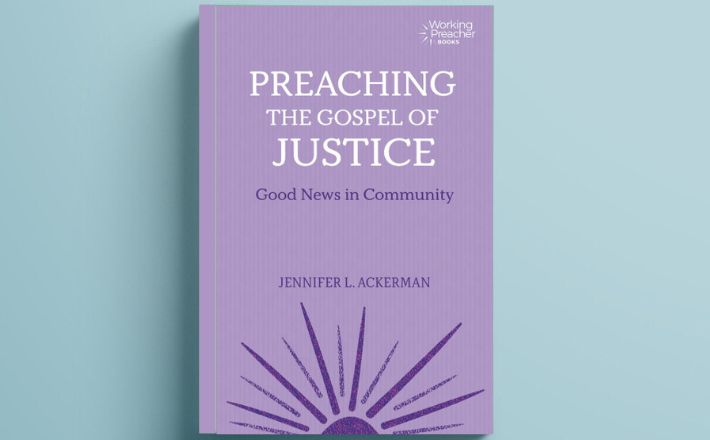What do you say to those who feel uncomfortable when they hear “preaching” and “justice” in the same sentence?
Jennifer Ackerman has more experience than many at responding to this question, since she leads a preaching initiative at the convergence of preaching, worship, and justice from Fuller Seminary. Her response: “Preaching justice faithfully is not only possible, but essential.” How could we read Scripture and not see that we are loved by a God of justice? We serve a God who wants the flourishing of all people, who is concerned about those who do not have a voice.
How does “social justice” fit in?
Even the good purposes of a political social justice agenda are about “How do I help my people?” Yet what God is asking for is a response to “How do I help all people?” God’s justice is more inclusive of all people, while social justice is usually about taking a stand on behalf of a particular group of people. So God’s justice is bigger, but also smaller, than social justice because it’s about decisions we make every day. Justice preaching is scriptural, but can look many different ways.
The subtitle of Ackerman’s book is Good News in Community, and indeed, communal action is at the heart of seeking God’s justice. Justice focuses faith less on individual redemption and more on communal transformation; of course, you can’t have one without the other. If following Jesus was only about our individual walk with Jesus, why would we come to church? We come to be communal, and together to become something new that follows God more closely. We become communities who ask what life means when we live into the freedom of what we have received from God. It’s about liberating us to not be so focused on ourselves. We are freed to be able to think about and care for the larger community.
In the book, Ackerman names that preaching is more than writing a sermon, and our podcaster Karoline Lewis zeroes in on this as advice for beginning preachers: “The call to preach is not a call to write a sermon.” It’s about the formation of the preacher more than the formation of the sermon. We bring our whole selves into the pulpit—everything we are carrying. We have to be constantly working on ourselves to bring a sermon that is going to touch people’s lives. It’s not “plug and play.” It’s messy and involves a lifetime of formation. We are working on opening up a space in us so that we can lead others to experience the same kind of openness to God.
People don’t go to sermons; they go to worship.
The sermon is embedded within the entire communal experience. Therefore, preachers don’t have to say everything in the sermon. Part of what preachers do is connect the dots between parts of worship and the Scripture and other parts of the congregation’s life. By being in relationship with people through the highs and lows, pastors shape the gospel of justice that people are then receptive to hearing. Guest preachers can be kind of drive-by prophets, but working preachers leading the community week in and week out have a different level of trust and roles on behalf of the community.
How can preachers attend to the Old Testament, the only place where the phrase “God of justice” occurs?
We can learn so much from the people of the covenant in the Old Testament. First, we need to resist the urge to jump from an Old Testament Scripture straight to Jesus. There is so much to learn from the people of the covenant and their relationship with God. Let Old Testament texts speak for themselves. Let us see what God is doing with Moses, Miriam, or anyone else. The truths of the Gospel are all over the Old Testament.
Are preaching justice and doing justice obligations, or delights?
The First Nations version of the Sermon on the Mount is “the Good Road,” and that imagery resonates with Ackerman. When we are walking along the good road, it’s not always delightful in itself, but walking it with others makes it delightful. Being in communion and doing justice is mutual delight. The work is no longer a burden, but a form of blessing.
Each of the main chapters of the book includes a sermon by someone other than the book’s author, demonstrating how others approach justice preaching, and how we each come at this differently. Prophetic preaching (a la Walter Brueggemann) doesn’t mean scolding people. It’s about hope. Prophetic preachers declare: Here are all the things God is giving us, which is the only way we can do anything. They direct us to the goodness of God.
To become more of a preacher of justice, Ackerman says, focus on the 3 Cs: curiosity, creativity, and courage. Each of these helps grow the other. The first step is doing something that scares you: If you’re not an artist, draw something and share it with someone. Try a spiritual discipline that’s not your preference, and lean in. This trying of new things doesn’t have to be in the pulpit. But you’re working on yourself as a preacher, opening yourself to God’s direction.
For more on this volume in the Working Preacher Books series, Preaching the God of Justice: Good News in Community, listen to a podcast episode or watch it on YouTube, in which Jennifer Ackerman discusses preaching justice with Rolf Jacobson and Karoline Lewis.

